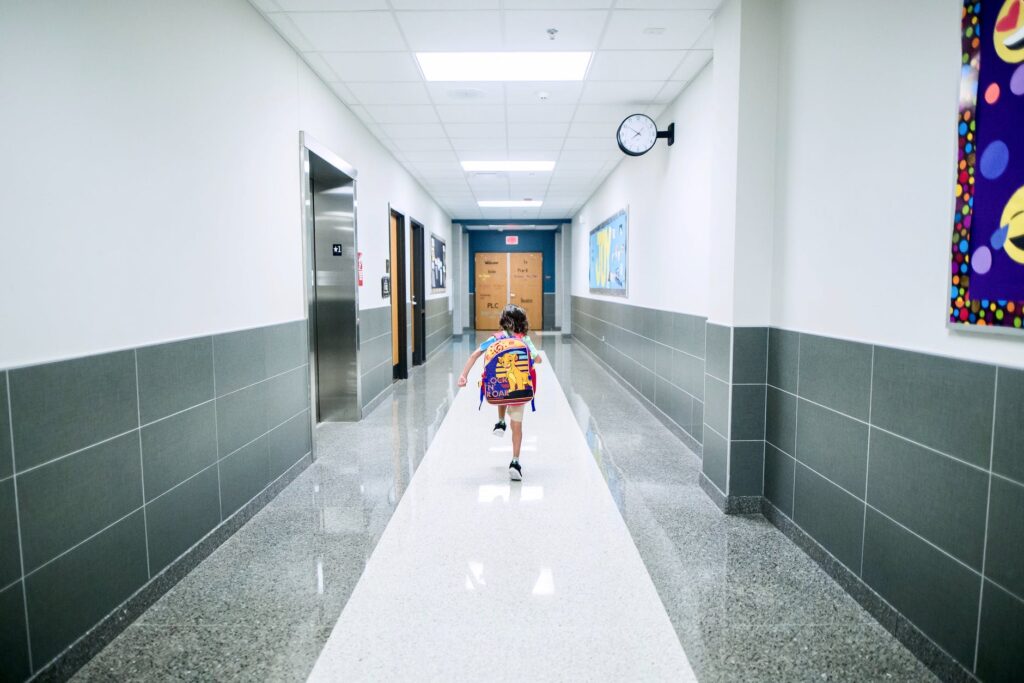The following post is a submitted guest column by Greg O’Loughlin
Last Saturday, some teacher friends and I were having lunch, and the conversation turned to the conditions required for students to trust their teachers with questions about racism, equity, and justice.
One of the teachers was recounting a recent experience with some of her students who were discussing the use of a racial epithet by some other students. Some were quoting recent headlines and others were using it in full while questioning appropriate usage. It sounded very much like kids playing with fire – it was dangerous, potentially harmful, and if things got out of hand, there was the risk that people would be hurt. Lines were crossed and confusion was leading to injury, so they came to this teacher seeking some help and guidance.
She shared the details of the conversation she facilitated with them, in between classes, in the hallway, then later in the day for some follow up. It was tricky and sensitive, and it worked – everyone involved in the conversation reported leaving it with a better understanding of the risks, the consequences, and the humanity involved.
A member of our party asked, “How did those students know that they could trust you with questions like that? Why did they know that they could turn to an older White lady with questions about the N-word? I don’t think I would have trusted a teacher with a question that was so full of emotion and vulnerability.”
The teacher reflected for a moment and said, “I think it’s because I’ve been in that school for so long. I taught their older brothers, and I’ve taught so many siblings, I guess I have a reputation as being trustworthy and safe and engaged in the work of exploring topics like that one. I know all the families, and they know me. We don’t always see eye to eye but we feel connected and like we’re part of the larger community, and we trust one another.”
She was trusted because she had spent countless hours investing in the community building and relationship building that is essential to effective teaching and learning.
That’s not something that’s covered in most analysis and discussion of teaching and teachers. Teachers are leaving at unprecedented rates and the harm this is causing in our communities cannot be addressed by simply replacing them.
Recent news about the growth of a program that will bring new teachers into the profession is welcome. Teachers have been sounding the alarm for far too long about the need for more adults in the building and more teachers in classrooms, and it’s good to see people in positions around the state deciding to do something about that. But who will be on the faculties of the schools when these new teachers arrive for the first day of school?
Will these new teachers arrive at school buildings where the majority of the faculty know the families, the siblings, and surrounding community? Or will these new teachers arrive at schools with dozens of other new teachers, lacking the relationships that are essential for effective teaching and learning?
A study by the University of Pennsylvania found that in 1987-1988, the average American teacher had approximately 15 years of experience in the classroom. By 2016, the average was less than 3 years. Nearly 50% of new teachers quit teaching in the first 5 years in the classroom. The kinds of relationships my friend described as being essential to her ability to connect with her students and their families take time. Learning takes time. Community building takes time. If we can’t keep teachers in the classroom, we are not providing them or their students with the necessary components of teaching and learning.
It’s a good idea to hire more teachers, and plans for how to do so are clear, celebrated, and well funded. Teachers in the classroom now deserve at least the same. A failure to address the specific needs of teachers is a failure to support the students. Bringing thousands of new teachers to a system that does not effectively support current teachers with well-defined and effective retention efforts is a short-sighted idea that could prove to be more harmful than good.
Let’s be sure that our most creative and concerted efforts are oriented toward retaining teachers. It’s what EdCo does, and we know it makes a difference in the lives of teachers, students, and communities.
Greg O’Loughlin, Founder and Director of The Educators’ Cooperative, a nonprofit based in Nashville that supports ALL educators with workshops and resources that result in longer, healthier, and more effective careers in the classroom.








